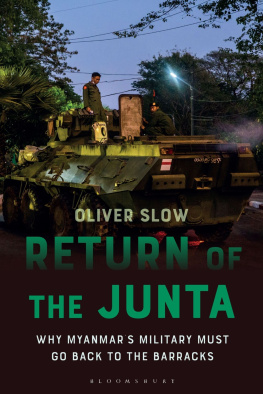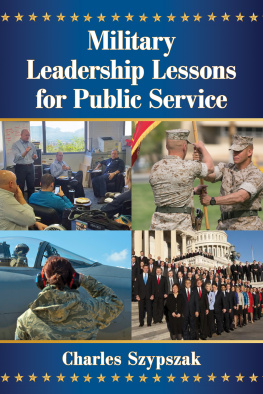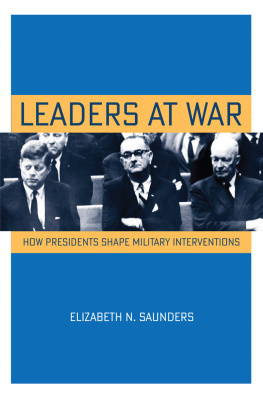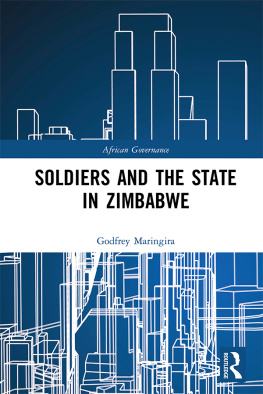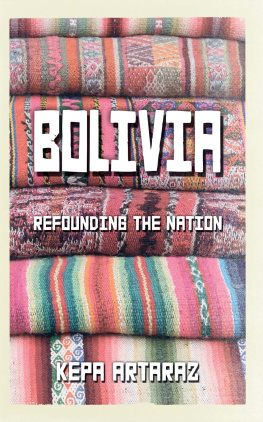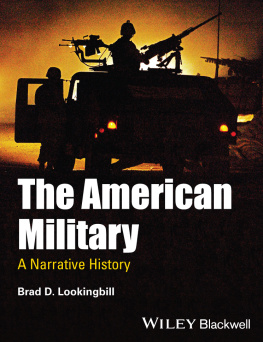draws on material from Mobilizing Manpower for War: Toward a New History of Bolivias Chaco Conflict, 19321935, Hispanic American Historical Review 95, no. 2 (2015): 299334. Several other chapters draw on material from Constructing Roads, Washing Feet, and Cutting Cane for the Patria: Building Bolivia with Military Labor, 19001975, International Labor and Working-Class History 80 (Fall 2011): 628.
Published by the University of Pittsburgh Press, Pittsburgh, Pa., 15260
Copyright 2020, University of Pittsburgh Press
All rights reserved
Manufactured in the United States of America
Printed on acid-free paper
10 9 8 7 6 5 4 3 2 1
Library of Congress Cataloging-in-Publication Data
Names: Shesko, Elizabeth, author.
Title: Conscript nation : coercion and citizenship in the Bolivian barracks / Elizabeth Shesko.
Description: Pittsburgh, Pa. : University of Pittsburgh Press, [2020] | Series: Pitt Latin American series | Includes bibliographical references and index.
Identifiers: LCCN 2019053604 | ISBN 9780822946021 (cloth) alk. paper | ISBN 9780822987383 (ebook)
Subjects: LCSH: Draft--Bolivia--Social aspects. | Civil-military relations--Bolivia. | Bolivia. Ejrcito--Recruiting, enlistment, etc. | Sociology, Military--Bolivia. | Bolivia--History, Military--20th century.
Classification: LCC UB345.B5 S54 2020 | DDC 355.2/23630984--dc23
LC record available at https://lccn.loc.gov/2019053604
Cover image: Walter Murillo, during his year of obligatory military service in 1940. From the personal collection of Rosa Marina Murillo
Cover design: Melissa Dias-Mandoly
ACKNOWLEDGMENTS
The research for this book began when I first approached the imposing gates of La Pazs Estado Mayor in 2008. Over the decade that I have lived with this project, I have accumulated many debts and been lucky enough to work with incredible people. First and foremost, I am grateful for John French, who is the model of a generous and engaged adviser. This book would be a far inferior product without the long hours he spent reading my work and debating its implications.
I count myself privileged to be part of an amazing cohort of Bolivianists who have turned renewed attention to this country, so much of whose history remains to be written. Nicole Pacino, Sarah Hines, Kevin Young, Bridgette Werner, and Molly Giedel from our Bolivianist writing group provided thought-provoking comments on the introduction and final chapter. I look forward to a career of continued exchanges with them and with Tasha Kimball, Carmen Soliz, Thomas Field, Matt Gildner, Luis Sierra, Elena McGrath, Nancy Egan, Chuck Sturtevant, Ben Knobbs-Thiessen, Hernn Pruden, and Andrew Ehrinpreis. I have also profoundly benefitted from the brilliant work and mentorship of the Bolivianists who blazed the trail for us, illuminating important parts of the countrys history and politics before it was in fashion. Gabi Kuenzli, Robert Smale, Brooke Larson, Erick Langer, Laura Gotkowitz, James Dunkerley, Ann Zulawski, Rossana Barragn, Nancy Postero, Krista Van Vleet, and Marta Irurozqui have all contributed to more than just the bibliography of this book, whether they know it or not. Waskar Aris ongoing advice and assistance on research, introductions, housing, and linguistic and cultural translations have been invaluable.
The community of social and cultural historians studying military life also profoundly enriched this work. Michelle Moyd put together a stellar conference about global military labor, and Reena Goldthree helped organize a workshop and an AHA panel on military labor in Latin America and the Caribbean. The conversations resulting from these events were formative to my thinking. Peter Guardino, David Carey, Zachary Morgan, Ren Harder Horst, Hendrik Kraay, Stephen Neufeld, Nico Sillitti, Leith Passmore, and Paul Johstono have influenced me and offered critical feedback. Putting together an edited volume is a thankless job, and Bridget Chesterton did an important service by bringing together historians of the Chaco War. Peter Beattie kindly commented on several conference papers and the introduction; his work has been an inspiration. And Jonathan Ablard has been with this project almost as long as I have, serving as a key collaborator. Dirk Bnker assisted me in my crash course in military history and worked with me to understand what stands out about the Bolivian situation.
Historian Luis Oporto has been an important supporter of this projects development. I owe him a crucial debt for his guidance in pursuing access to the Ministry of Defense archives. The staff there, led by Lic. Berta Lecoa and Colonel Carlos Gonzalo Arzabe at the Central Archive and Colonel Adolfo Colque, Lieutenant Colonel Hugo Quiroga, and Major Gonzalo Leytn at the Territorial Registry, kindly assisted with this research. I am also thankful to Colonel Simn Orellana, Sub-Official Luis Mamani, and the rest of the staff at the Historical Archive of the Estado Mayor for facilitating my work with their priceless archival holdings. Dr. Rossana Barragn and her crack staff at the Archive of La Paz provided knowledgeable assistance in navigating their extensive holdings. The then-director of the Arturo Costa de la Torre Library, Ivica Tadic, gave me a warm welcome and helped me sort through years of military journals. And the staff at the Archive of Bolivias Plurinational Legislature were unfailing in their assistance with my research on legal, congressional, and periodical sources.
The Snchez family in Asuncin took me in when the vagaries of Bolivian visas threatened my research fellowship. Evelyn especially offered guidance and friendship. Colonel Nstor Gonzlez and his staff at Paraguays Ministry of Defenses Historic Institute helped me sift through their rich holdings to find hundreds of photographs and documents related to prisoners of war. Lic. Adelina Pusineri at the Andrs Barbero Museum and Archive was more than generous with her time and archival expertise. Marie Morel provided company and introduced me to the holdings of the Archbishopric Archive.
None of this research in Bolivia, Paraguay, the United Kingdom, and the United States would have been possible without the support of the US Department of Education, the Mellon Foundation, the Tinker Foundation, the Duke Foundation, the Duke Graduate School, the Duke History Department, and Bowdoin College. A summer FLAS allowed me to study the Aymara language with Miguel Huanca. During my research trips, Amy OToole, Marina Murillo, and Alicia Dinerstein kindly opened their homes in Bolivia to me, providing far more than just a place to sleep. The day I met Nely Canqui at an archivists congress was a lucky one. She not only supported my work but became a close friend. Heather Joffe and Alicia Dinerstein made my stays in Bolivia feel like home. I could not have asked for better friends with whom to travel.
Janice Joffe at Bowdoin College taught the gateway Spanish course that started me on this trajectory and has encouraged me along the way. Fascinating courses with Matt Lassiter got me interested in history, and Enrique Yepess intellectual generosity first exposed me to the rigor of academic writing. Allen Wells mentored me throughout the process. The year I spent back at Bowdoin in his office surrounded by his books was a privilege and inspiration. Kelly Kerneys wit and friendship was by far the best thing I gained from college, however.
At Duke and UNC, Pete Sigal, Jocelyn Olcott, Orin Starn, Diane Nelson, and Kathryn Burns complicated my understandings of identification and difference and deepened my questions about how local politics and power relations articulate with broader structures. I also benefitted greatly from the insights and patience of Jan Hoffman French. Bryan Pitts, Kristin Wintersteen, Katharine French-Fuller, Jeffrey Richey, Reena Goldthree, Erin Parish, Caroline Garriott, Vanessa Freije, David Romine, Corinna Zeltsman, Anne Phillips, Jeff Erbig, and Rachel Hynson forged an unparalleled intellectual community and support network of Latin Americanists. Alumni like Alejandro Velasco, Ivonne Wallace Fuentes, Mark Healey, Tom Rogers, and David Sartorios gave valuable advice when I hit walls. Julia Gaffield, Mitch Fraas, Orion Teal, Anne-Marie Angelo, and Bryan Pitts have offered unwavering friendship over the years. Only graduate school could bring such wonderful people together only to then scatter them to the ends of the earth.


